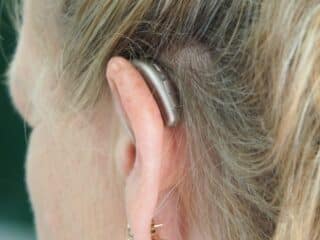
With the right help in simulation, though, you’ll be able to help your child to understand you and communicate with you. This is especially important if your child is born deaf. It’s one thing to start understanding hearing loss, but it’s quite another thing to understand how to communicate and manage a deaf child. The first thing you have to know about dealing with a deaf child is that you need to stay optimistic. Your baby is going to have some hearing problems, but that doesn’t mean that you can’t communicate. Let’s take a look at some of the top ways that you can help your deaf child to manage.
- Learn to recognize and respond to communication. Even with hearing loss, children can still communicate with you. Encouraging them to look at your face and make eye contact is important. This will allow them to recognise your facial expressions and understand what your mood is. You should always pay attention to their own movements and any noises they make, because deaf children often only cry a little, so tuning into other attempts to express themselves includes them, body movements, their gaze and the way that they reach out.
- Talk to an audiologist. You need to talk about hearing aids or cochlear implants to see whether your child is eligible for either. Some people prefer to allow their children to communicate and learn to live with deafness, but you can help them to enhance their hearing with cochlear implants or with the help of a good hearing aid. They helped to stimulate a deaf baby because they can provide them with hearing opportunities, which is often something that they need to be able to communicate what they need.
- Use playtime. If you want to be able to bond with your deaf child, then using Playtime can really help. Babies who can hear and those with hearing problems take a lot of joy in learning from the simplest of activities and day-to-day object use. Peekaboo, for example, is still an exciting game, even if they can’t necessarily hear the peekaboo.
- Keep singing those lullabies. Just because your child is deaf doesn’t mean you shouldn’t sing to them. Not only will your baby learn to see the smile on your face and see your mouth moving to shape words, you can Start learning sign language yourself so that you can sing and sign at the same time. Don’t hesitate to give them musical instruments for them to bash and play nursery rhymes or lullabies for them to feel the rhythm.






